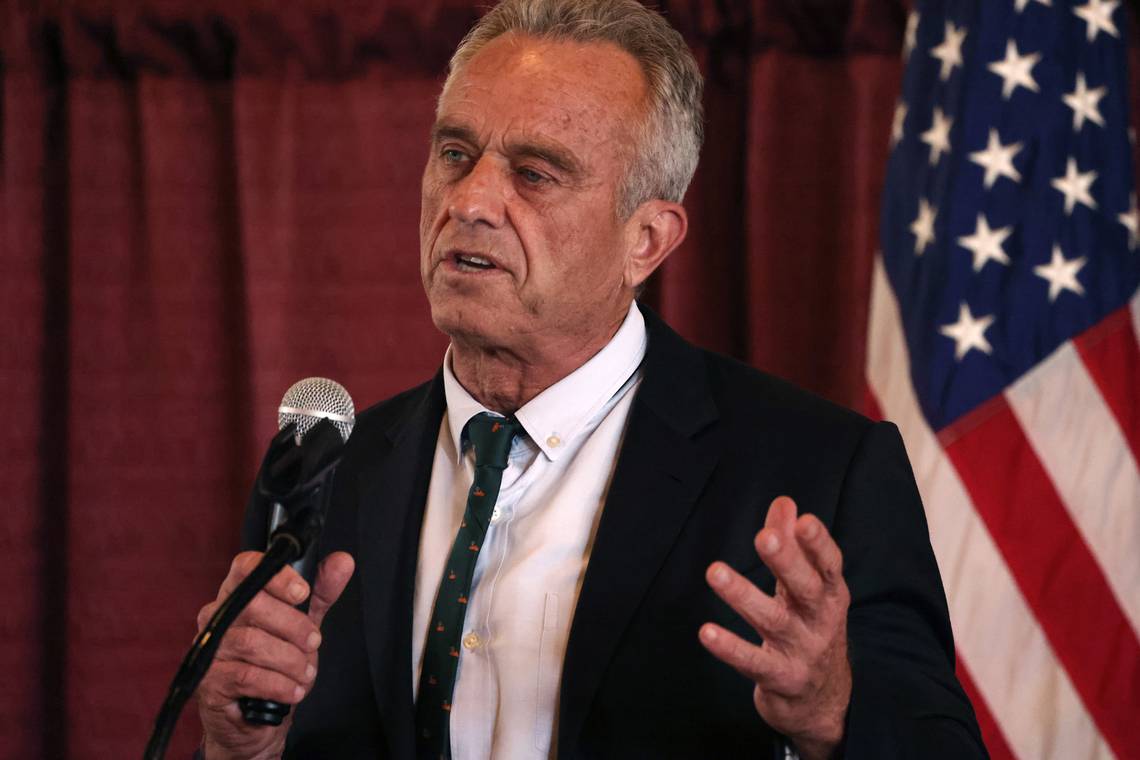
A Wake County judge ruled Monday that Robert F. Kennedy Jr. can remain on North Carolina’s November ballot as a third-party presidential candidate.
Rejecting a challenge from the state Democratic Party, which argued Kennedy skirted the rules for running as an unaffiliated candidate by instead forming a new political party, Judge Keith Gregory, a Democrat, ruled Kennedy had complied with state law in his attempt to get on the ballot.
“It would be unconscionable for this court to attempt to tell a candidate who has decided to use one of two methods that the method he used is a subterfuge when in fact — if it is or it isn’t — he still complied with the requirements,” Gregory said, ruling from the bench after several hours of arguments.
Speaking after the ruling, a lawyer for Kennedy’s new party criticized Democrats for bringing the lawsuit.
“My advice to the Democratic Party is they ought to just compete for voters’ votes,” the lawyer, Oliver Hall, said. “What they’re doing now trying to suppress voter choice is a very bad look for a political party — especially one named the Democratic Party.”
Why NC Democrats sued
Democrats sued the State Board of Elections last month after it voted 4-1 to certify Kennedy’s new “We The People” party, allowing him to appear as a presidential candidate in North Carolina. They argued that Kennedy intentionally sought to create a new party to avoid the more difficult process of running as an unaffiliated candidate — which he is doing in several other states.
“What one cannot do is to try to take a shortcut when you’re really an independent candidate and create a political party solely for the purpose of putting that candidate on the ballot,” Ray Bennett, a lawyer for the Democratic Party, said.
North Carolina law requires more than 80,000 signatures to get unaffiliated candidates on the ballot — but fewer than 14,000 to certify new parties.
What the Board of Elections and We The People said
Attorneys for the state board and We The People argued that state law does not prohibit the formation of new political parties for the purpose of nominating a certain candidate and regardless, WTP is running candidates other than just Kennedy in the 2024 elections.
“They are expressly suing a rival political party because it formed itself as a political party … for exercising its fundamental First Amendment right,” Hall said.
Democrats could appeal Gregory’s decision, but time is running out for any changes to the ballot. The board begins ballot printing in mid-August and the first absentee ballots are sent to voters Sept. 6.
EMEA Tribune is not involved in this news article, it is taken from our partners and or from the News Agencies. Copyright and Credit go to the News Agencies, email news@emeatribune.com Follow our WhatsApp verified Channel





